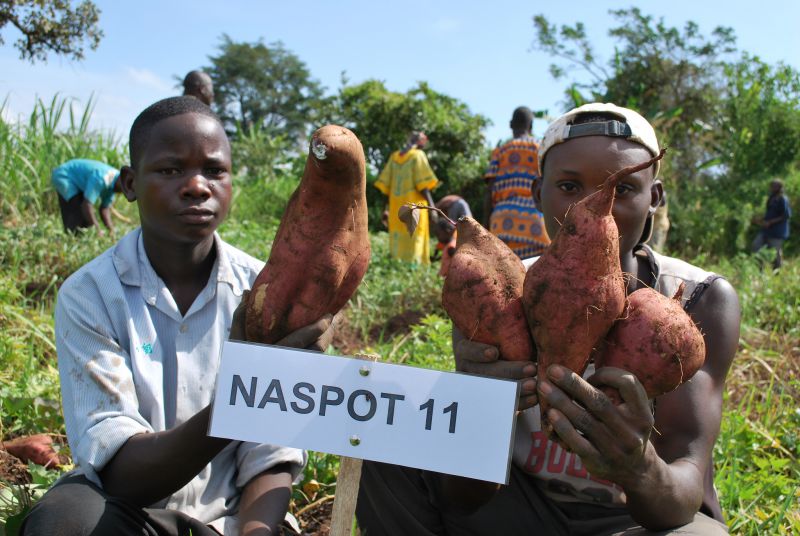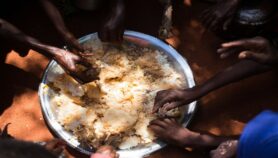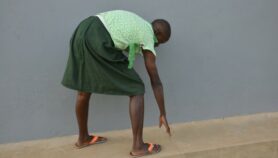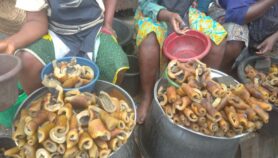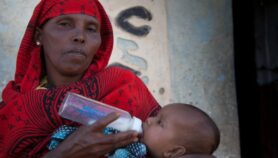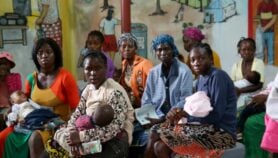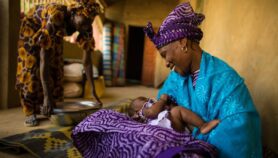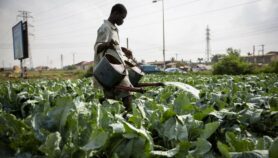By: Esther Nakkazi
Send to a friend
The details you provide on this page will not be used to send unsolicited email, and will not be sold to a 3rd party. See privacy policy.
[KAMPALA] Four scientists — three of them in Africa — have won US$250,000 for combined success in improving nutrition and health through combating vitamin A deficiency in vulnerable populations.
Kenneth M. Quinn, president of the World Food Prize Foundation, announced last month (28 June), that the 2016 World Food Prize will be awarded to them.
The award indicates the need for investing in agricultural research to improve the livelihood of the poor, said Quinn, in a statement.
“The award is also a proof to the policymakers and all Ugandans that scientists are contributing a lot to household nutrition.”
Jolly Kabirizi, National Livestock Resources Research Institute, Uganda
Maria Andrade and Robert Mwanga, working for the International Potato Center (CIP), have bred the Vitamin A-enriched orange-fleshed sweet potato (OFSP), which has contributed to averting blindness.
The other winner, Jan Low, who is based in Kenya, is the project manager of the Sweet potato Action for Security and Health in Africa (SASHA) project for the CIP.
SASHA advocates for use of a proven integrated agriculture and nutrition approach in Sub-Sharan Africa.
Every year up to 500,000 children worldwide go blind and half of them die within 12 months after going blind due to vitamin A deficiency, says the WHO.
OFSP provides vitamin A to children, pregnant and lactating mothers.
“I am overjoyed that this success story has been given high profile to attract attention of the globe to the potential to exploit orange-fleshed sweet potato to save lives and improve livelihoods of the poor,” says Mwanga, a sweet potato breeder at CIP based in Kampala, Uganda.
Since 2009, with support from the Bill & Melinda Gates Foundation and other key donors, CIP launched the Sweet potato for Profit and Health Initiative (SPHI) in Sub-Saharan Africa along with 26 partners. The initiative seeks to improve the lives of 10 million African households by 2020 in 17 African countries.
So far, the initiative has released 56 new sweet potato varieties, 42 of them orange-fleshed.
The varieties have reached 2.2 million households in ten countries: Ghana, Kenya, Madagascar, Malawi, Nigeria, Rwanda, South Africa, Tanzania, Uganda and Zambia.
The OFSP-bred varieties are adapted to different conditions and are preferred by farmers, according to Mwanga, noting the initiative is a good example of output of scientific research in Africa’s agriculture.
At CIP, research for development extends through the entire value chain, from production to processing and marketing, Mwanga adds. Researchers use a participatory market approach taking into account consumer and farmer preferences in identifying the traits to breed, particularly in texture and taste, to get closer to the type of sweet potato consumed in many African countries.
Jolly Kabirizi, principal research officer and forage scientist at the National Livestock Resources Research Institute in Uganda, tells SciDev.Net: “The award is also a proof to the policymakers and all Ugandans that scientists are contributing a lot to household nutrition, income generation and poverty alleviation. Many resource poor families using orange fresh sweet potatoes have benefited from this variety.”
This piece was produced by SciDev.Net’s Sub-Saharan Africa English desk.


